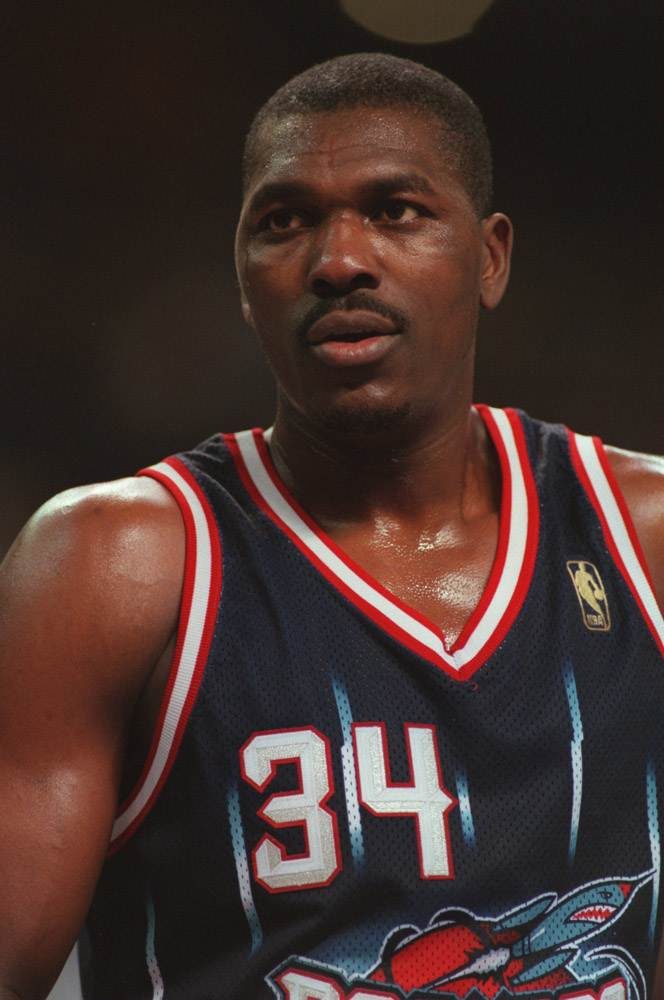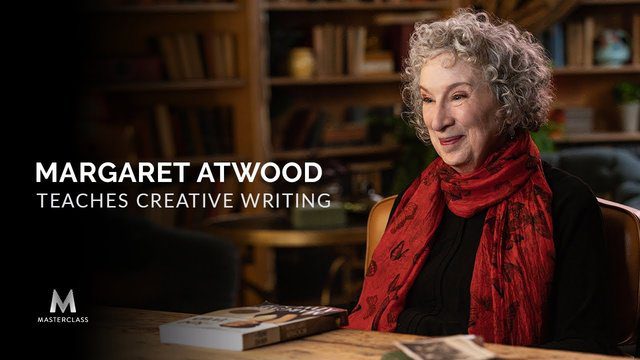After ten seasons in the NBA, the Nigerian-born Olajuwon won the league’s Most Valuable Player and Defensive Player of the Year awards. The only other man ever to be so honoured is Michael Jordan.
- In 1993/94, Hakeem became the only player in NBA history to win the NBA MVP, Defensive Player of the Year, and Finals MVP awards in the same season.
- The Houston Rockets drafted Olajuwon with the first overall selection of the 1984 NBA draft, a draft that included Michael Jordan, Charles Barkley, and John Stockton.
- In 1996, Olajuwon was a member of the Olympic gold-medal-winning United States national team, and was selected as one of the 50 Greatest Players in NBA History
- A 12-time All-Star, Hakeem Olajuwon amassed 26,946 points and 13,748 rebounds in his legendary career.
- He ended his career as the league’s all-time leader in blocks (3,830) and is one of four NBA players to record a quadruple-double.
Hakeem Olajuwon is a Nigerian-American former professional basketball player. Born in Lagos, Nigeria, Olajuwon traveled from Lagos, Nigeria, to play for the University of Houston under head coach Guy Lewis. His college career for the Cougars included three trips to the Final Four. The Houston Rockets drafted Olajuwon with the first overall selection of the 1984 NBA draft, a draft that included Michael Jordan, Charles Barkley, and John Stockton.
From 1984 to 2002, he played the center position in the National Basketball Association (NBA) for the Houston Rockets and the Toronto Raptors. He led the Rockets to back-to-back NBA championships in 1994 and 1995. In 2008, he was inducted into the Basketball Hall of Fame, and in 2016, he was inducted into the FIBA Hall of Fame.
He was nicknamed “The Dream” during his basketball career after he dunked so effortlessly that his college coach said it “looked like a dream. He led the league in rebounding twice (1989, 1990) and blocks three times (1990, 1991, 1993).
NBA Profile
Olajuwon, which translates into “always being on top,” began playing basketball at the late age of 15. Olajuwon’s high school, the Muslim Teachers College, was an entry in the basketball tournament at the All-Nigeria Teachers Sports Festival in Sokoto — but Olajuwon was on the handball team. A fellow student approached the coach and asked if Olajuwon could play for the team. Permission was granted and a basketball superstar was born.
In 1993-94, Olajuwon attained the pinnacle of achievement when he won both the league and NBA Finals MVP awards while leading Houston to its first-ever NBA crown. Following a brilliant regular season, the Houston center also earned his second straight NBA Defensive Player of the Year Award.
Olajuwon believes that his religious faith supported his drive to a great career. During an NBA season he observes Islam’s Ramadan, which includes periods of fasting. He would awaken before dawn to eat precisely seven dates — the traditional Muslim fast-breaking food — and to drink a gallon of water. He would follow with a prayer for strength and have no food or liquid until sunset.
Olajuwon’s impact on the city of Huston, however, did not go unrecognized. The Rockets’ all-time leader at the time of his retirement in a host of categories, including points, rebounds, steals, and blocked shots (All-time NBA leader with 3,830) had his jersey No. 34 retired on Nov. 9, 2002. At the ceremony, it was announced that a life-sized statue of Olajuwon would be on display at the Rockets’ new downtown arena, scheduled to open for the 2003-04 season.
However, due to Olajuwon’s strict Muslim beliefs, the Rockets instead unveiled a bronze monument honoring Olajuwon outside the arena in 2006. Two years later, Olajuwon would receive another honor: induction into the Naismith Memorial Basketball Hall of Fame. Ironically enough, Ewing was part of the class, too, providing another link between the longtime on-court rivals.
How it all started:
Charlie Rose: Yeah. You grew up in Lagos.
Hakeem Olajuwon: Yes.
Charlie Rose: An American Peace Corps worker — Oliver Johnson? Oliver
Hakeem Olajuwon: Oliver Johnson.
Charlie Rose: –saw you.
Hakeem Olajuwon: Yeah.
Charlie Rose: –introduced you to basketball, changed your life.
Hakeem Olajuwon: He was the national basketball coach, you know, in Nigeria, Oiver Johnson. And I was playing soccer. I was playing team and ball. So most of the coaches had been trying, you know, to get me to play basketball, but that was the last, you know– I was already playing about five sports, five different sports, so to have one more sport, I didn’t really– I wasn’t interested until I pick up the, you know, the, the ball, the basketball, and he was showing me how to shoot the basketball. After making my first basket, I fell in love with the game, and I dropped all the other sports. So that was how I started playing basketball.
After making my first basket, I fell in love with the game, and I dropped all the other sports. So that was how I started playing basketball.
Going to America
Charlie Rose: You came to Houston in 1980.
Hakeem Olajuwon: Yes.
Charlie Rose: 1984 championship, then joined the Rockets in ’84. Naturalized American?
Hakeem Olajuwon: Yes.
Charlie Rose: Yeah. When did you get citizenship?
Hakeem Olajuwon: Last year.
Charlie Rose: What did that mean?
Hakeem Olajuwon: Well, you know, I’ve been here for 12 years, you know. Houston is more or less like my second home, and I feel comfortable; and to share in part of the American Dream, you know, to be a citizen, I think I was honored and fortunate to be.
On Islam
Charlie Rose: What difference has the re-embrace, or the stronger connection to Islam done for you?
Hakeem Olajuwon: Well, it’s a way of life, and it, it gives you a total submission and obedience, and it’s all discipline, where you sacrifice you– you know, you have a clear direction and you know how to deal in all aspects of life in the best manner, you know, so that just bring every– put everything in perspective,
Governor Cuomo on Hakeem Olajuwon
Mario Cuomo: Well, first of all, I have seen senators– centers from George Mikan on. You don’t know who George Mikan was
Charlie Rose: Mikan.
Mario Cuomo: He was the first really big man
Hakeem Olajuwon: Okay.
Mario Cuomo: –who played basketball. And I have seen them all. Bill Russell, who’s one of my favorites. There has never been a center like you.
Hakeem Olajuwon: Oh.
Mario Cuomo: There has never– no. No, this is the literal truth. There has never been a center, a cenat– center who could use his feet the way you do.
Charlie Rose: Yeah.
Mario Cuomo: You have introduced a whole new element
Charlie Rose: And that’s from soccer, in part.
Hakeem Olajuwon: Yes.
Mario Cuomo: –to the game. It’s the– well, whatever it’s from– well, it’s more than that. It’s the way the guy is born. It’s his balance. It’s his instinct. You bring a lot more than that. You don’t, you don’t have the size that the really big men have had in the past– or have now. You have this agility. You have poise.And you have something Joe DiMaggio had. You don’t know Joe DiMaggio, either.
Hakeem Olajuwon: No.
Mario Cuomo: But you are perceived by the people as having dignity, having class, having style. The way you deport yourself is very, very important. This whole package is unique. You’re a great great athlete because God made you that way, and you added a little bit to it. Your deportment is all you, personally.
But you are perceived by the people as having dignity, having class, having style. The way you deport yourself is very, very important. This whole package is unique. – Mario Cuomo Former Governor of New York on Olajuwon



Comments are closed.